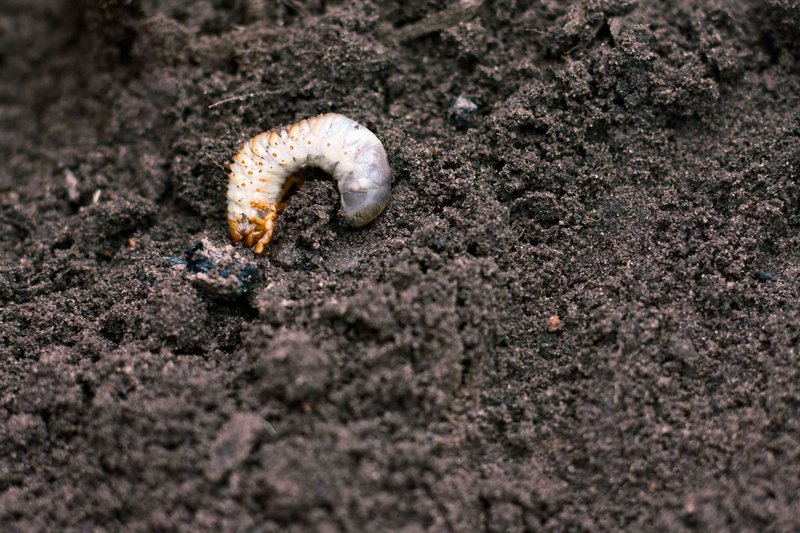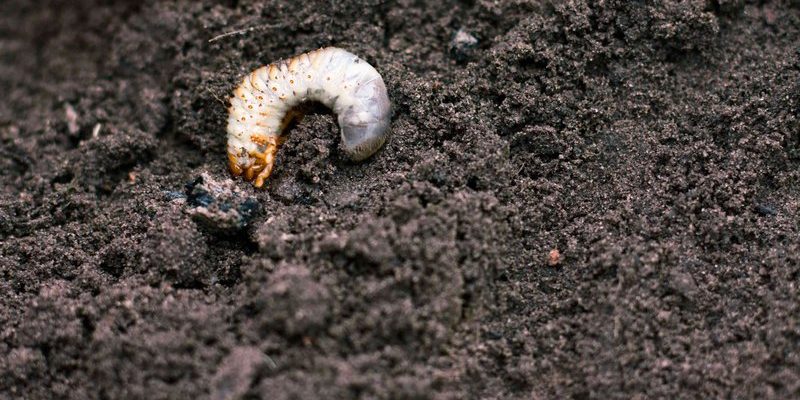
Think of your lawn as a delicate ecosystem, where every tiny creature plays a role, and the tools you use can make a big difference. Grub worms, for instance, are like that uninvited guest who eats too much at a party. They can damage your grass if left unchecked, but they also contribute to the soil’s health. On the flip side, lawn rollers might seem like magical tools to create a perfect finish, but they can also compact the soil if used incorrectly. So, what’s fact and what’s fiction? Let me explain.
What Are Grub Worms?
Grub worms are the larval form of beetles, and they can be a nuisance in your lawn if their populations grow unchecked. They typically develop into adult Japanese beetles or June beetles, but in their immature stages, they chow down on your lawn’s roots. This can lead to brown patches and even dead grass. You might be wondering what they look like. They’re usually white, C-shaped critters that curl up when disturbed.
**Why Should You Care About Grub Worms?**
If you want a healthy lawn, understanding grub worms is essential. Here’s what you need to know:
- They feed on the roots of grass, which can weaken or kill your lawn.
- High populations can attract animals like raccoons and birds that dig up your yard searching for them.
- Checking for grub worms can be an essential part of your lawn care routine.
Managing their population can make a significant difference in keeping your lawn looking its best.
Common Myths About Grub Worms
Myth 1: **All Grub Worms Are Bad**
While grub worms can cause damage, not all of them are harmful. Some species actually help decompose organic matter in the soil. It’s important to recognize when their population is too high to take action.
Myth 2: **You Only See Grub Worms in the Summer**
Honestly, grub worms are active year-round. They’re in the soil during the winter months, too, feeding on roots and organic matter. You might not notice them until the grass starts to brown in the spring or summer.
Myth 3: **Treating Grub Worms is Always Effective**
Many homeowners resort to chemical treatments to rid their lawns of grub worms. However, if applied incorrectly or at the wrong time, these treatments can do more harm than good—killing beneficial insects as well.
What is a Lawn Roller?
Now, let’s shift gears and talk about lawn rollers. Think of these as giant, heavy cylinders that you roll across your lawn. Their purpose is to flatten the surface, help seeds make contact with the soil, and compact the soil slightly. When used correctly, they can create a smooth, even lawn—which sounds great, right?
But here’s the catch: if you over-use a lawn roller, it can compact the soil too much. This can restrict root growth and limit water absorption. So, while it’s great to have a nicely rolled lawn, moderation is key.
Myths Surrounding Lawn Rollers
Myth 1: **You Should Roll Your Lawn Every Year**
This is a common misconception. Rolling your lawn every year can damage the soil structure. Instead, consider rolling only when necessary, such as after seeding or if your lawn has uneven patches.
Myth 2: **Lawn Rollers Guarantee a Perfect Lawn**
Here’s the thing: lawn rollers don’t magically create a lush lawn. They’re just one part of the equation. Proper watering, fertilization, and mowing are also crucial to achieving that perfect green. Think of the roller as just a tool, not the solution.
Myth 3: **All Rollers Are the Same**
There are various types of lawn rollers, from water-filled to those that are heavy and solid. The kind you choose will impact the results. A lightweight roller might not do much, while a heavy one could compact the soil too much.
How to Tackle Grub Worms Effectively
If you’ve discovered that you have grub worms, don’t worry. There are effective ways to manage them without resorting to harsh chemicals. Here’s what you can do:
- Inspect Your Lawn: Check for brown patches and dig up a small area to see if you find grub worms.
- Consider Beneficial Nematodes: These tiny worms can be a natural enemy of grub worms, helping to reduce their population.
- Implement a Healthy Lawn Care Routine: Regular fertilization and watering can strengthen your grass, making it more resistant to grub damage.
Remember, not all solutions work for every lawn. Always keep an eye on the condition of your grass and adjust your methods as needed.
Using Lawn Rollers Wisely
To get the most out of your lawn roller, it’s essential to use it wisely. Here are some tips to maximize its impact without risking soil health:
- Timing is Key: Roll your lawn after aerating or overseeding to help seeds make good contact with the soil.
- Don’t Overdo It: Limit the frequency of rolling to prevent soil compaction. Once every couple of years is usually sufficient.
- Choose the Right Roller: Pick one that suits your lawn size and needs—water-filled rollers are often easier to use for smaller lawns, while heavy rollers work well on larger areas.
By following these suggestions, you can ensure that your lawn remains healthy and thriving.
Understanding **grub worms** and using a **lawn roller** effectively are crucial pieces of the puzzle when it comes to maintaining a vibrant lawn. While myths abound, it’s clear that both of these elements can either help or hinder your efforts, depending on how you approach them.
It’s all about balance. Treat grub worms reasonably and roll your lawn with care. Armed with the right knowledge, you’ll be better prepared to nurture your lawn into a beautiful, green oasis. So, next time you encounter information that seems sketchy about grub worms or lawn rollers, you can confidently say, “I know the real story!” Happy gardening!

